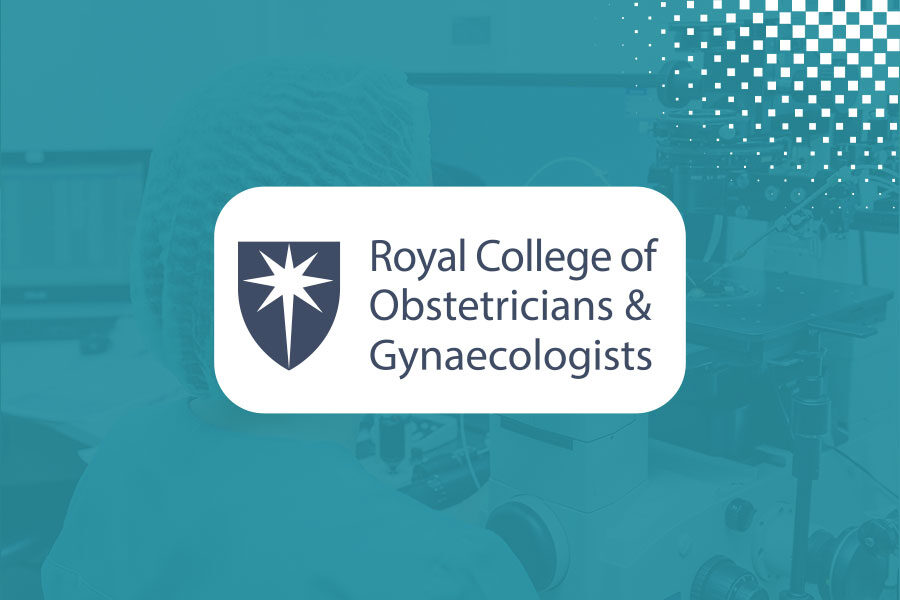The Royal College of Obstetricians and Gynecologists has recently published new guidance on the investigation and care of women with recurrent miscarriage.
Definitions
Miscarriage is defined as the spontaneous loss of pregnancy before the fetus reaches viability. The term therefore includes all pregnancy losses from the time of conception until 24 weeks of gestation. There are two types of miscarriage: sporadic and recurrent.
Sporadic miscarriage is often the result of random fetal chromosomal anomalies. Its incidence increases with age and may affect between 10% and 50% of women aged 20 to 45 years respectively.
By contrast, recurrent miscarriage has traditionally been defined as three or more miscarriages affecting approximately only 1% of women. Several features suggest that recurrent miscarriage is a distinct clinical entity rather than just three incidental sporadic miscarriages occurring by chance: i) a woman’s risk of miscarriage is directly related to the outcomes of previous pregnancies, ii) the average observed incidence of recurrent miscarriage is higher than what would be expected by chance alone, and iii) unlike sporadic miscarriage, recurrent miscarriage tends to occur even if the fetus has no chromosomal anomalies.
The time to embark on a full-series of investigations has always been a matter of debate amongst clinicians. The American Society for Reproductive Medicine (ASRM) have used the term recurrent pregnancy loss and have recommended clinical evaluation after two first trimester clinical pregnancy losses. The European Society for Human Reproduction and Embryology (ESHRE) have concluded with a definition of two or more pregnancy losses, in their 2017 guideline.
Therefore, even if recurrent miscarriage has been defined as three or more first trimester miscarriages, clinicians are encouraged to use their clinical discretion to recommend extensive evaluation after two first trimester miscarriages, if there is a suspicion that the miscarriages are of pathological and not of sporadic nature (for example if a woman has had a pregnancy loss with a normal non-invasive prenatal test or karyotype).
Risk factors for recurrent miscarriage
1. Epidemiological factors
Advancing maternal age is associated with a decline in both the number and quality of the remaining oocytes, resulting in higher rates of aneuploidy in the fertilized embryos. The age-related risk of miscarriage for women has been found to be: 15% at 30–34 years, 25% at 35–39 years, 51% at 40–44 years, and 93% at 45 or more years.
Higher miscarriage rates have been proven for men aged over 40 years, although far less pronounced when compared with the effect of increased maternal age.
The risk of sporadic miscarriage is increased in women who smoke, who are consuming five or more alcoholic drinks per week (approximately 10 units/week), who have high caffeine intake, and in those with a BMI less than 19, or more than 25.
2. Thrombophilia
2.1. Acquired
Antiphospholipid syndrome (APS) is defined as the association between antiphospholipid (aPL) antibodies (lupus anticoagulant, anticardiolipin [aCL] antibodies and antibeta-2-glycoprotein-I antibodies) and adverse pregnancy outcome (including recurrent miscarriage) or vascular thrombosis.
2.2. Inherited
Inherited thrombophilias, including Factor V Leiden mutation, protein C and S deficiencies, antithrombin deficiency and prothrombin gene mutation, are established causes of systemic thrombosis. However, inherited thrombophilias have also been implicated as a possible cause in recurrent miscarriage and late pregnancy complications with the presumed mechanism being thrombosis of the blood flow between the uterus and the placenta.
3. Genetic factors
Parental structural chromosome abnormalities are associated with recurrent miscarriage. Fetal chromosomal anomalies though remain the commonest cause of both sporadic miscarriage and recurrent miscarriage. A study has shown that miscarriages following assisted reproductive treatment have rates of cytogenetic anomalies similar to sporadic miscarriages.
4. Anatomical factors
The incidence of congenital uterine anomalies (mainly septate and bicornuate uteri) appears to be higher in subfertile women (8,0%), in women with recurrent miscarriage (13,3%), and in women who experience both subfertility and miscarriage (24,5%).
The presence of myomas, endometrial polyps and intrauterine adhesions is known to affect fertility in varying degrees. Therefore, it seems reasonable to recommend management similar to that of the general population.
Cervical insufficiency, along with infection and congenital uterine anomalies appear to be main contributors of second trimester miscarriage.
5. Endocrine factors
Systemic maternal endocrine disorders such as diabetes mellitus and thyroid disease have been associated with miscarriage. Women with diabetes who have high haemoglobin A1c levels in the first trimester are at risk of miscarriage and fetal malformation. However, well-controlled diabetes mellitus is not a risk factor for recurrent miscarriage, nor is treated thyroid dysfunction.
On the contrary, the incidence of subclinical hypothyroidism (on this occasion defined as TSH more than 2.5 mIU/l), polycystic ovary syndrome (PCOS), as well as prolactin imbalances have all been linked to an increased risk of miscarriage.
6. Immune factors
There has been much debate around the association of several immune factors such as HLA alleles, Cytokines and NK cell density with recurrent miscarriage. No consistent conclusions can be drawn and further research is required to assess the contribution of all of the above to recurrent miscarriage.
7. Infections
The presence of bacterial vaginosis in the first trimester of pregnancy has been reported as a risk factor for miscarriage and preterm birth. A meta-analysis showed a statistically significant increase in second trimester miscarriages. However, the evidence for an association with first trimester miscarriage is inconsistent.
Chronic endometritis has also been implicated in recurrent miscarriage, although the diagnostic criteria remain controversial. A study found that the incidence of chronic endometritis in women with recurrent miscarriage was 10.8%, twice higher than that of fertile women (5.0%).
8. Male factors
Several sperm parameters have been found to be lower in men experiencing recurrent miscarriage versus controls. The data are more consistent with regard to the association between abnormal sperm DNA parameters such as sperm DNA fragmentation and miscarriage.
What are the recommended investigations?
1. Thrombophilia
Women with recurrent miscarriage should be offered testing for acquired thrombophilia, particularly for lupus anticoagulant and anticardiolipin antibodies, prior to pregnancy. Women with second trimester miscarriage may be offered testing for Factor V Leiden, prothrombin gene mutation and protein S deficiency.
2. Genetic
Cytogenetic analysis should be offered on pregnancy tissue of the third and subsequent miscarriage(s) and in any second trimester miscarriage. In recurrent miscarriage, parental peripheral blood karyotyping should be performed for couples in whom testing of pregnancy tissue reports an unbalanced structural chromosomal abnormality. Parental karyotyping may be offered when testing of the pregnancy tissue is unsuccessful or when there is no pregnancy tissue available for testing.
3. Anatomical
Women with recurrent miscarriage should be offered assessment for congenital uterine anomalies, ideally with 3D ultrasound.
4. Endocrine
Women with recurrent miscarriage should be offered thyroid function tests and assessment for thyroid peroxidase (TPO) antibodies.
5. Immune
Women with recurrent miscarriage should not be routinely offered immunological screening (such as HLA, cytokine and NK cell tests), outside of a research context.
6. Infections
Women with recurrent miscarriage should not be routinely offered infection screening outside of the research context. There is a lack of consistent association between infection testing, associated treatment, and recurrent miscarriage.
7. Male
Couples with recurrent miscarriage should not be routinely offered sperm DNA testing outside of the research context. Although there appears to be an association between sperm DNA fragmentation and miscarriage, there are yet to be any prospective trials demonstrating improved outcomes with intervention.
8. Lifestyle modifications
Change in lifestyle is link with improved outcomes. Women with recurrent miscarriage should be advised to maintain a BMI between 19 kg/m2 and 25kg/m2, smoking cessation, limit alcohol consumption and limit caffeine to less than 200mg/day.
Treatment options
All results should be interpreted by clinicians with specific expertise in the area. Treatment options include:
- thromboprophylaxis (with aspirin in combination with heparin) for thrombophilia
- assisted reproductive treatment with preimplantation genetic testing for genetic factors
- hysteroscopic septum resection for congenital uterine anomalies
- thyroxine supplementation for women with moderate subclinical hypothyroidism (TSH more than 4 mIU/l)
- progestogen supplementation should be considered in women with recurrent miscarriage who present with bleeding in early pregnancy
With regards to risk factors such as acquired uterine anomalies, immune imbalances and male factors, an individualized approach should be made by the expert.
Unexplained recurrent miscarriage
A significant proportion of cases of recurrent miscarriage remain unexplained, despite detailed investigation. These women and their partners can be reassured that the prognosis for a successful future pregnancy with supportive care alone is in the region of 75%. Psychological support ideally in the setting of a dedicated recurrent miscarriage clinic has a beneficial effect.
Would you like to learn more about how we can help with recurrent miscarriage?
If you would like to speak with a NOW-fertility expert to learn more about how we can help, then please click below to get started.







